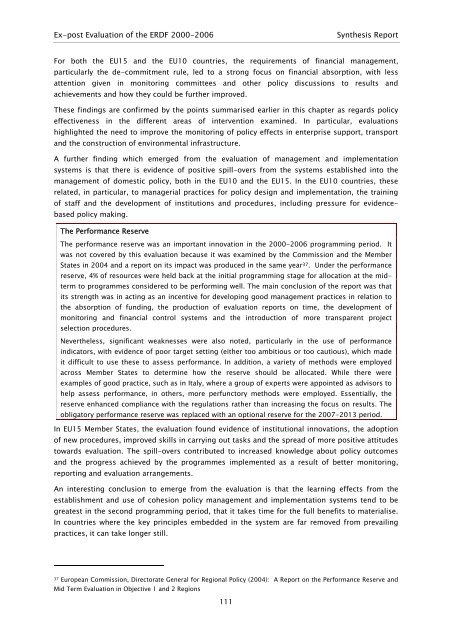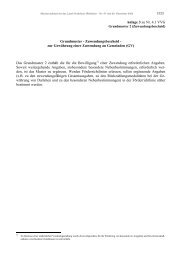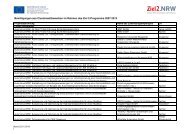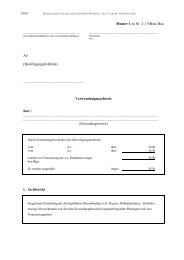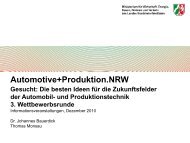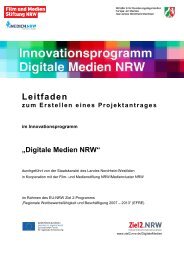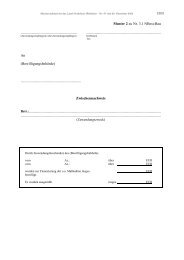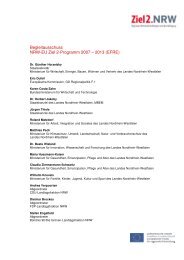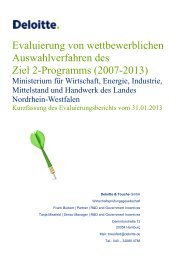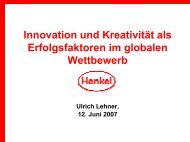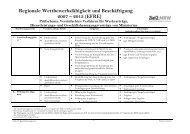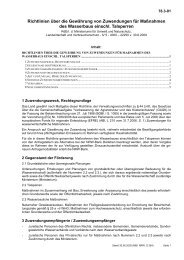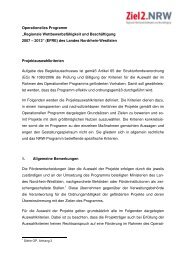Synthesis Report - European Commission - Europa
Synthesis Report - European Commission - Europa
Synthesis Report - European Commission - Europa
Create successful ePaper yourself
Turn your PDF publications into a flip-book with our unique Google optimized e-Paper software.
Ex-post Evaluation of the ERDF 2000-2006<br />
<strong>Synthesis</strong> <strong>Report</strong><br />
For both the EU15 and the EU10 countries, the requirements of financial management,<br />
particularly the de-commitment rule, led to a strong focus on financial absorption, with less<br />
attention given in monitoring committees and other policy discussions to results and<br />
achievements and how they could be further improved.<br />
These findings are confirmed by the points summarised earlier in this chapter as regards policy<br />
effectiveness in the different areas of intervention examined. In particular, evaluations<br />
highlighted the need to improve the monitoring of policy effects in enterprise support, transport<br />
and the construction of environmental infrastructure.<br />
A further finding which emerged from the evaluation of management and implementation<br />
systems is that there is evidence of positive spill-overs from the systems established into the<br />
management of domestic policy, both in the EU10 and the EU15. In the EU10 countries, these<br />
related, in particular, to managerial practices for policy design and implementation, the training<br />
of staff and the development of institutions and procedures, including pressure for evidencebased<br />
policy making.<br />
The Performance Reserve<br />
The performance reserve was an important innovation in the 2000-2006 programming period. It<br />
was not covered by this evaluation because it was examined by the <strong>Commission</strong> and the Member<br />
States in 2004 and a report on its impact was produced in the same year 37 . Under the performance<br />
reserve, 4% of resources were held back at the initial programming stage for allocation at the midterm<br />
to programmes considered to be performing well. The main conclusion of the report was that<br />
its strength was in acting as an incentive for developing good management practices in relation to<br />
the absorption of funding, the production of evaluation reports on time, the development of<br />
monitoring and financial control systems and the introduction of more transparent project<br />
selection procedures.<br />
Nevertheless, significant weaknesses were also noted, particularly in the use of performance<br />
indicators, with evidence of poor target setting (either too ambitious or too cautious), which made<br />
it difficult to use these to assess performance. In addition, a variety of methods were employed<br />
across Member States to determine how the reserve should be allocated. While there were<br />
examples of good practice, such as in Italy, where a group of experts were appointed as advisors to<br />
help assess performance, in others, more perfunctory methods were employed. Essentially, the<br />
reserve enhanced compliance with the regulations rather than increasing the focus on results. The<br />
obligatory performance reserve was replaced with an optional reserve for the 2007-2013 period.<br />
In EU15 Member States, the evaluation found evidence of institutional innovations, the adoption<br />
of new procedures, improved skills in carrying out tasks and the spread of more positive attitudes<br />
towards evaluation. The spill-overs contributed to increased knowledge about policy outcomes<br />
and the progress achieved by the programmes implemented as a result of better monitoring,<br />
reporting and evaluation arrangements.<br />
An interesting conclusion to emerge from the evaluation is that the learning effects from the<br />
establishment and use of cohesion policy management and implementation systems tend to be<br />
greatest in the second programming period, that it takes time for the full benefits to materialise.<br />
In countries where the key principles embedded in the system are far removed from prevailing<br />
practices, it can take longer still.<br />
37 <strong>European</strong> <strong>Commission</strong>, Directorate General for Regional Policy (2004): A <strong>Report</strong> on the Performance Reserve and<br />
Mid Term Evaluation in Objective 1 and 2 Regions<br />
111


